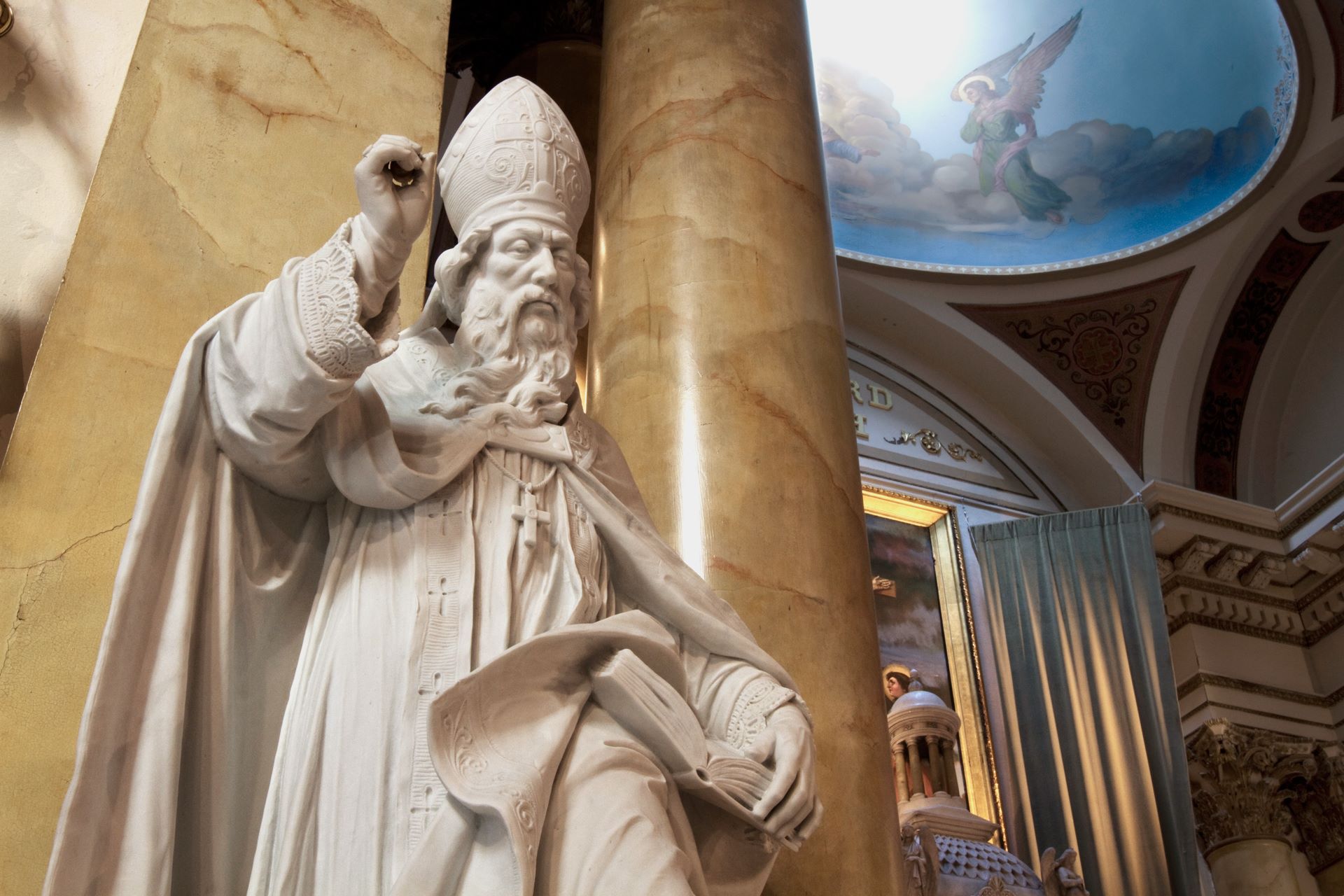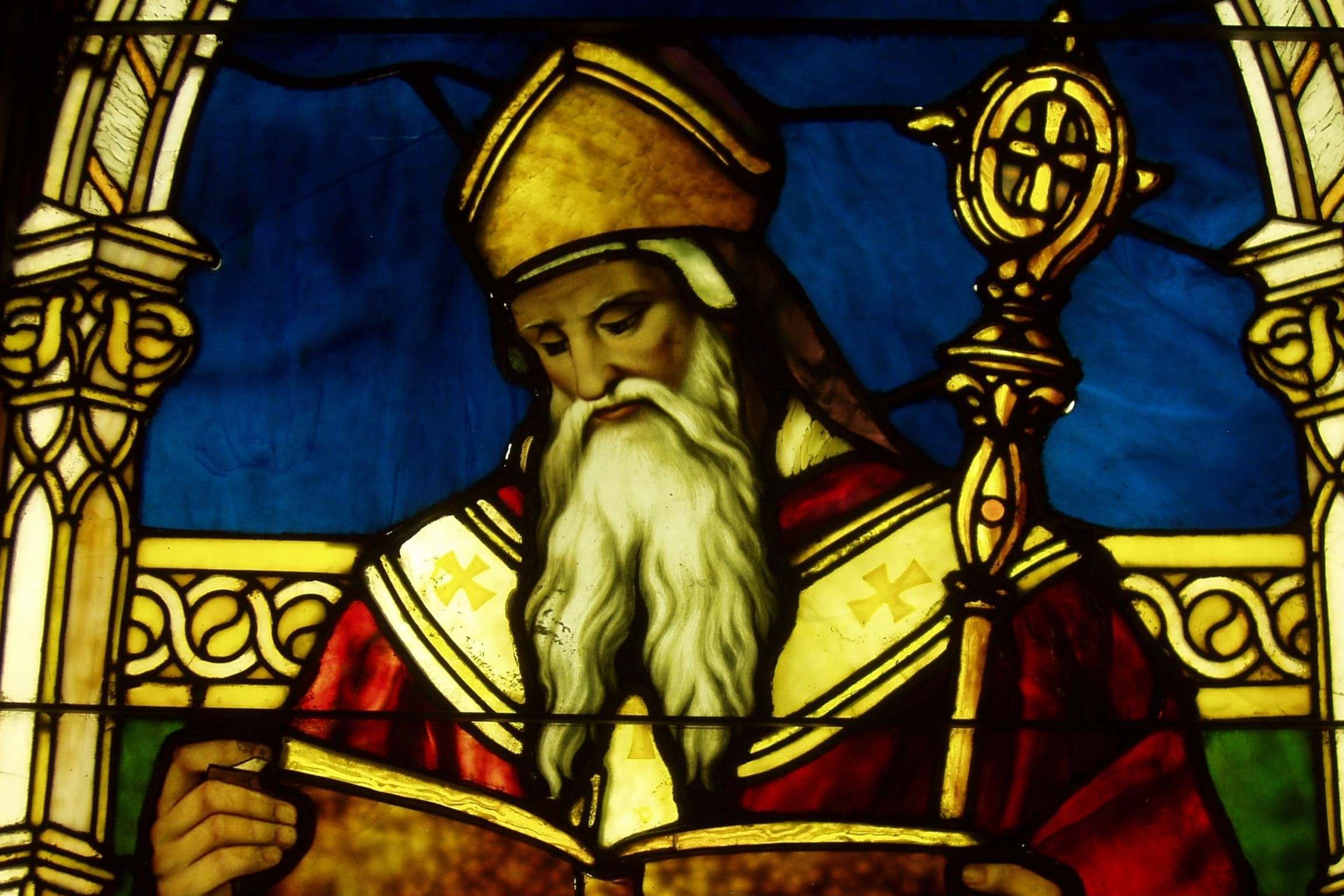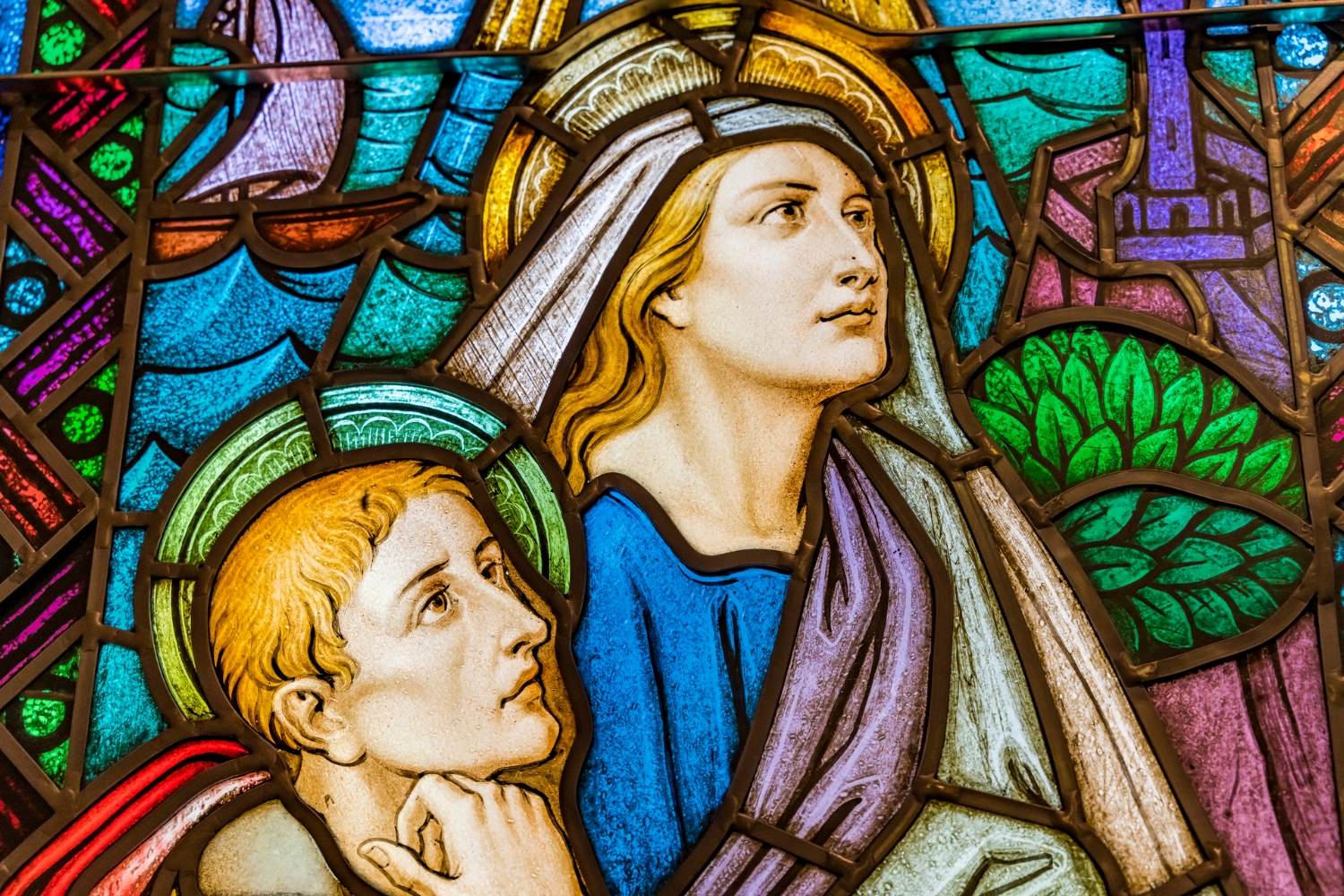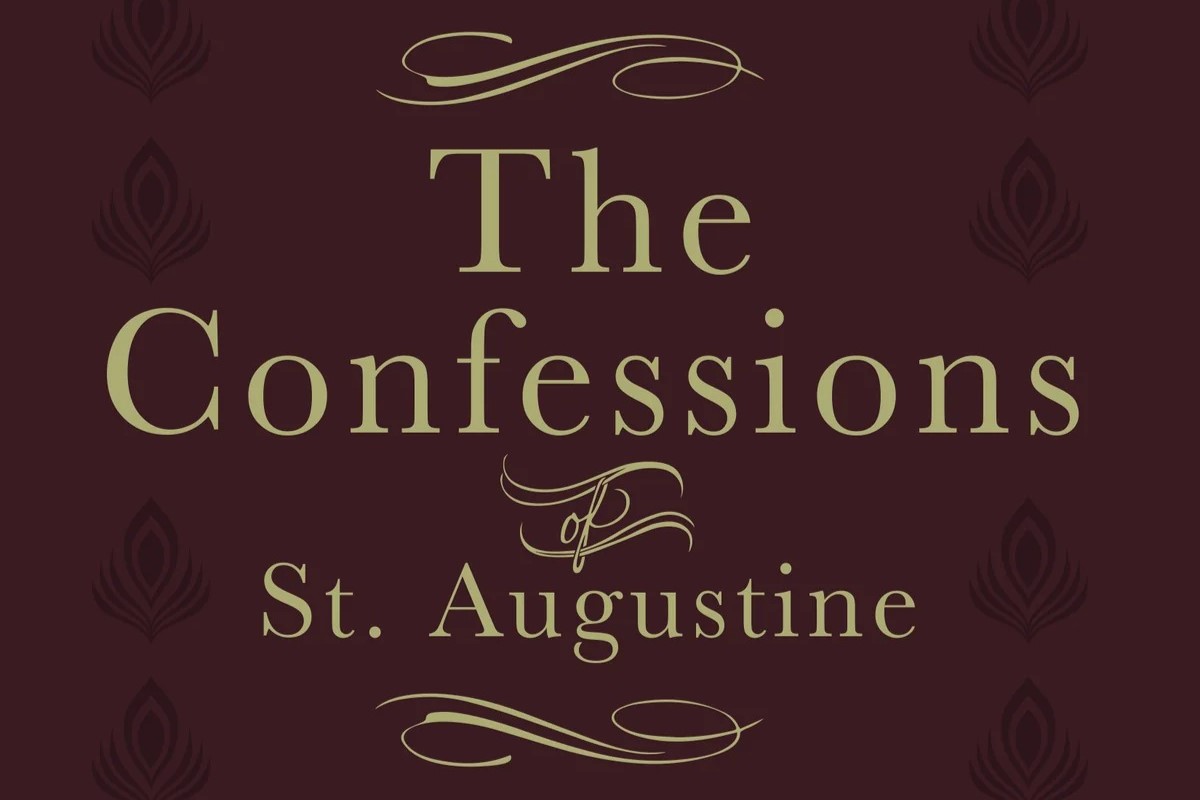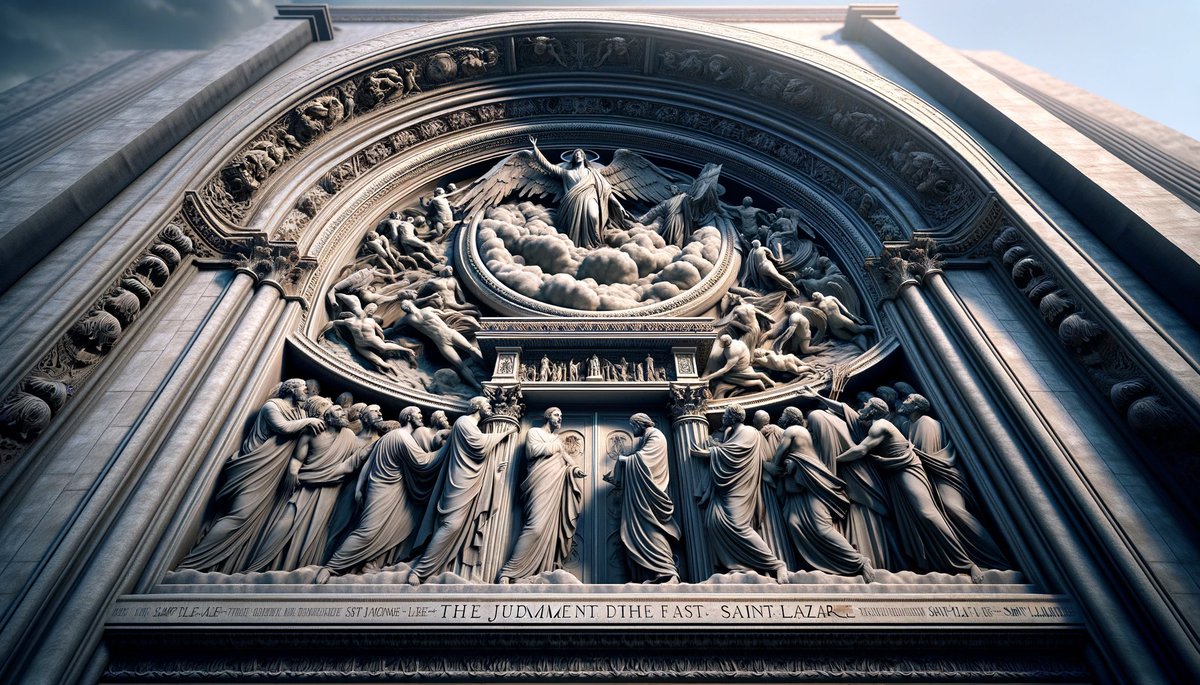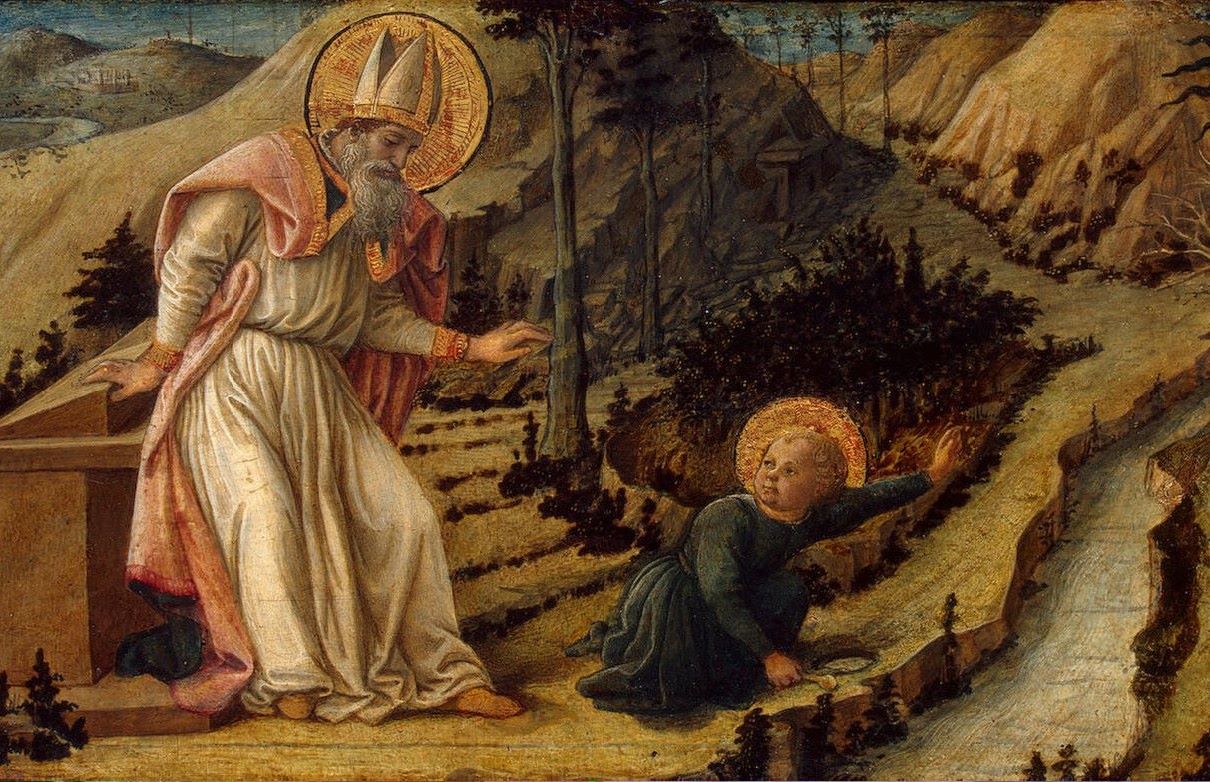Home>Theology and Spirituality>Who Was Saint Augustine
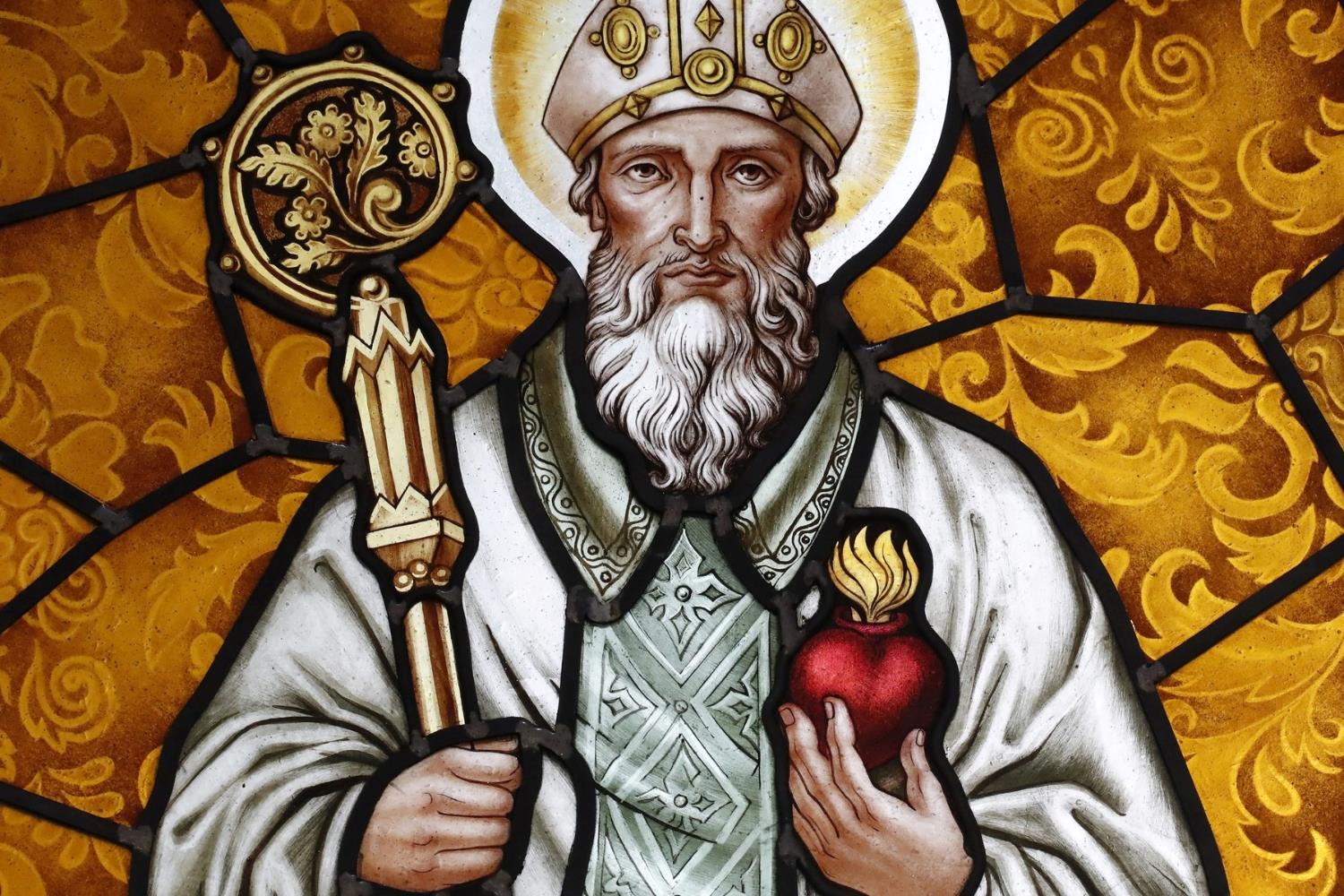

Theology and Spirituality
Who Was Saint Augustine
Published: February 10, 2024
Jason DeRose, Managing Editor at Christian.net, uses his expertise in religion and journalism to deepen understanding of faith's societal impacts. His editorial leadership, coupled with a strong academic background, enriches the platform’s diverse content, earning him recognition in both journalism and religious circles.
Discover the life and teachings of Saint Augustine, a prominent figure in theology and spirituality. Learn about his profound influence on Christian thought and philosophy.
(Many of the links in this article redirect to a specific reviewed product. Your purchase of these products through affiliate links helps to generate commission for Christian.net, at no extra cost. Learn more)
Table of Contents
Introduction
Saint Augustine, also known as Augustine of Hippo, was a pivotal figure in the development of Christianity and Western philosophy. Born in 354 AD in the town of Thagaste, in what is now Algeria, Augustine's impact on theology, spirituality, and philosophy continues to resonate through the centuries.
His life and writings have left an indelible mark on the Christian tradition, shaping the understanding of sin, grace, and the nature of God. Augustine's journey from a life of youthful indiscretions to becoming one of the most influential theologians in history is a testament to the transformative power of faith and introspection.
Throughout his life, Augustine grappled with profound questions about the human condition, the nature of evil, and the pursuit of truth. His intellectual curiosity and spiritual fervor led him on a path of self-discovery that ultimately shaped his theological and philosophical contributions.
As we delve into the life and legacy of Saint Augustine, we will explore the formative experiences that shaped his worldview, his conversion to Christianity, and the enduring impact of his writings on Christian thought and spirituality. Join us on a journey through the life of this remarkable figure, whose insights continue to inspire and challenge believers and seekers alike.
Early Life and Education
Augustine was born on November 13, 354 AD, in Thagaste, a provincial town in Roman Africa, which is present-day Souk Ahras, Algeria. His father, Patricius, was a pagan, while his mother, Monica, was a devout Christian. This religious dichotomy would later influence Augustine's spiritual journey.
From an early age, Augustine exhibited a keen intellect and a thirst for knowledge. His parents, despite their modest means, were determined to provide him with a quality education. At the age of 11, Augustine was sent to Madauros, a nearby city, to pursue his studies. Here, he received a classical education in literature, rhetoric, and philosophy, laying the foundation for his future pursuits.
In 370 AD, at the age of 17, Augustine journeyed to Carthage to further his education. It was in Carthage that he encountered the vibrant intellectual and cultural milieu of the Roman Empire. Augustine immersed himself in the study of rhetoric and literature, honing his oratorical skills and expanding his intellectual horizons. However, his time in Carthage was also marked by youthful indiscretions and a departure from his Christian upbringing.
Despite his academic successes, Augustine's personal life was tumultuous. He fathered a son, Adeodatus, out of wedlock, and his pursuit of knowledge led him to explore various philosophical and religious traditions. His voracious appetite for learning led him to embrace Manichaeism, a dualistic religion that would significantly influence his thinking in the years to come.
Amidst these intellectual and personal explorations, Augustine's pursuit of truth and meaning remained steadfast. His quest for knowledge was not merely an academic exercise but a deeply personal and existential endeavor. This period of his life was marked by a profound restlessness and a yearning for spiritual fulfillment, setting the stage for the transformative events that would unfold in the years ahead.
As Augustine's formative years drew to a close, his intellectual pursuits and personal experiences would converge in unexpected ways, ultimately leading him on a path of spiritual awakening and theological inquiry that would shape the course of Christian thought for centuries to come.
Conversion to Christianity
At the age of 31, after years of intellectual exploration and spiritual restlessness, Augustine experienced a profound transformation that would alter the course of his life. The catalyst for this pivotal moment was a series of encounters and inner struggles that culminated in his conversion to Christianity.
One of the defining influences on Augustine's conversion was the unwavering faith and prayers of his mother, Monica. Throughout his tumultuous journey, Monica's steadfast devotion and fervent supplications for her son's spiritual well-being never wavered. Her prayers would eventually bear fruit, as Augustine's heart and mind underwent a profound upheaval.
In the midst of his inner turmoil, Augustine encountered the renowned bishop and orator, Ambrose of Milan. Ambrose's eloquence and profound understanding of Scripture captivated Augustine, drawing him into a deeper exploration of Christian teachings. Through their interactions, Augustine's intellectual barriers began to crumble, and the seeds of faith took root in his soul.
The pivotal moment of Augustine's conversion occurred in the garden of his friend, where, in the throes of inner conflict and emotional turmoil, he heard a child's voice chanting, "Take up and read, take up and read." Interpreting this as a divine message, Augustine turned to the Scriptures and opened the Epistles of Saint Paul. The passage that met his gaze spoke directly to the depths of his being, and in that moment, the clarity and conviction he had long sought flooded his heart. Overwhelmed by the transformative power of grace, Augustine surrendered to the embrace of Christ, and his conversion to Christianity was consummated.
This profound encounter with divine truth marked the beginning of a new chapter in Augustine's life. His restless quest for meaning and truth found its fulfillment in the Christian faith, and his intellectual pursuits became intertwined with a deep and abiding love for God. From that moment forward, Augustine's journey was characterized by a fervent devotion to Christ and an unwavering commitment to understanding and proclaiming the tenets of the Christian faith.
The impact of Augustine's conversion reverberated far beyond his personal narrative, shaping the trajectory of Christian theology and spirituality. His writings and teachings would bear the indelible imprint of his conversion experience, infusing his theological reflections with a profound sense of divine grace and the transformative power of faith.
Augustine's conversion stands as a testament to the enduring truth that the human heart, no matter how restless, can find its rest in the embrace of divine love. His journey from skepticism to faith continues to inspire seekers and believers, reminding us that the pursuit of truth ultimately leads to the discovery of the One who is the Way, the Truth, and the Life.
Theological and Philosophical Contributions
Augustine's theological and philosophical contributions have had a profound and enduring impact on Christian thought and Western philosophy. His writings encompass a wide range of topics, including the nature of God, the problem of evil, the concept of grace, the human will, and the interpretation of Scripture. Through his profound insights and rigorous intellectual inquiry, Augustine left an indelible mark on the development of Christian theology and shaped the contours of Western philosophical discourse.
One of Augustine's most influential contributions is his formulation of the concept of original sin. Building upon his own experiences and the teachings of the Christian tradition, Augustine articulated a profound understanding of the human condition marked by the inheritance of Adam's sin. His exploration of the consequences of original sin and its impact on human nature continues to be a foundational aspect of Christian theology, shaping discussions on redemption, grace, and the need for divine intervention in the salvation of humanity.
In his seminal work "Confessions," Augustine delved into the depths of the human soul, exploring the complexities of human desires, the nature of sin, and the transformative power of divine grace. Through introspective reflections and profound theological insights, Augustine illuminated the intricacies of the human experience and the longing for communion with the divine. His exploration of the human will and the interplay between grace and free will has been a subject of intense theological and philosophical inquiry, influencing debates on predestination, moral responsibility, and the nature of divine sovereignty.
Augustine's contributions to the interpretation of Scripture have also left an enduring legacy. His exegetical works, such as "On Christian Doctrine" and "The Literal Meaning of Genesis," provided a framework for understanding and interpreting the biblical text, emphasizing the primacy of love in interpreting Scripture and the importance of discerning the spiritual truths embedded in the sacred writings. Augustine's hermeneutical principles continue to inform biblical scholarship and theological reflection, underscoring the depth and richness of the Christian scriptural tradition.
Furthermore, Augustine's philosophical inquiries into the nature of time, the existence of God, and the problem of evil have been instrumental in shaping the contours of Western philosophical thought. His engagement with Neoplatonic philosophy and his profound reflections on the nature of reality and the human quest for transcendence have contributed to the development of philosophical discourse on metaphysics, epistemology, and ethics.
In summary, Augustine's theological and philosophical contributions stand as a testament to the enduring power of intellectual inquiry and spiritual reflection. His writings continue to inspire theologians, philosophers, and seekers of truth, inviting them to grapple with the profound questions of existence, the nature of God, and the human longing for meaning and transcendence. Augustine's legacy endures as a beacon of wisdom and insight, guiding generations in the pursuit of truth and the discovery of the divine presence in the complexities of human experience.
Legacy and Influence
Augustine's legacy reverberates through the corridors of history, shaping the trajectory of Christian theology, spirituality, and Western philosophical thought. His profound insights, theological reflections, and unwavering commitment to the pursuit of truth have left an indelible mark on the intellectual and spiritual landscape of humanity.
The enduring influence of Augustine's writings is evident in their pervasive impact on Christian theology. His articulation of original sin, the nature of grace, and the complexities of human will have permeated theological discourse, shaping the understanding of redemption, divine intervention, and the human quest for transcendence. Augustine's theological legacy continues to inspire theologians and believers, inviting them to grapple with the profound mysteries of faith and the complexities of the human condition.
Furthermore, Augustine's contributions to the interpretation of Scripture have provided a robust framework for engaging with the sacred texts. His emphasis on the primacy of love in interpreting Scripture and the discernment of spiritual truths within the biblical narratives has enriched the tradition of biblical exegesis, guiding scholars and seekers in their exploration of the divine revelation encapsulated in the Scriptures.
In the realm of Western philosophy, Augustine's profound inquiries into the nature of God, the problem of evil, and the human quest for transcendence have left an enduring imprint. His engagement with Neoplatonic philosophy and his reflections on the nature of reality have contributed to the development of philosophical discourse on metaphysics, epistemology, and ethics. Augustine's philosophical legacy continues to inspire philosophers and thinkers, prompting them to grapple with the existential questions that lie at the heart of human existence.
Beyond the realms of academia and intellectual inquiry, Augustine's influence extends to the lived experiences of countless individuals who have been touched by his writings. His profound reflections on the human condition, the longing for transcendence, and the transformative power of divine grace resonate with the depths of the human soul, offering solace, wisdom, and hope to those who seek meaning and purpose in the complexities of life.
In essence, Augustine's legacy and influence endure as a testament to the enduring power of faith, intellect, and introspection. His writings continue to inspire and challenge generations, inviting them to embark on a journey of self-discovery, spiritual awakening, and the pursuit of truth. Augustine's enduring legacy stands as a beacon of wisdom and insight, guiding humanity in the quest for meaning, transcendence, and the discovery of the divine presence in the tapestry of human existence.
